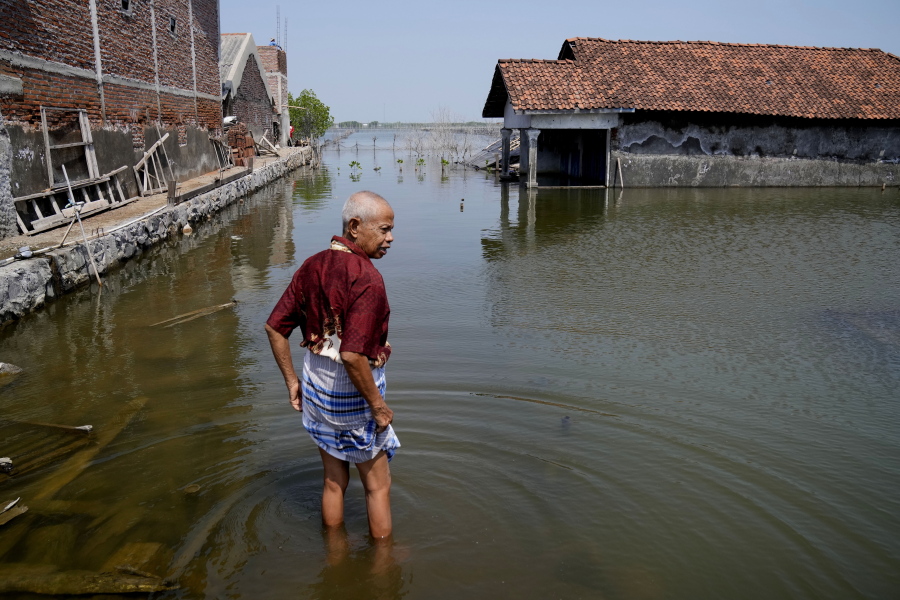UNITED NATIONS — U.N. Secretary-General Antonio Guterres warned Tuesday that sea levels will rise significantly even if global warming is “miraculously” limited to 1.5 degrees Celsius — and said Earth is more likely on a path to warming that amounts to “a death sentence” for countries vulnerable to that rise.
Every fraction of a degree counts, since sea level rise could double if temperatures rise by 2 degrees Celsius (3.6 degrees Fahrenheit), and increase exponentially with further temperature increases, the U.N. chief said. He spoke at the opening of a U.N. Security Council meeting on sea level rise, which was hearing from 75 countries, and said the council has a critical role in building support for actions to fight climate change.
Under any scenario, countries like Bangladesh, China, India and the Netherlands are all at risk, and large cities on every continent will face serious impacts, including Cairo, Lagos, Maputo, Bangkok, Dhaka, Jakarta, Mumbai, Shanghai, Copenhagen, London, Los Angeles, New York, Buenos Aires and Santiago, he added.
The World Meteorological Organization released figures Tuesday, cited by Guterres, that say global mean sea level will rise by about 2 meters to 3 meters (about 6.5 to 9.8 feet) over the next 2,000 years if warming is limited to 1.5 degrees Celsius. With a 2-degree Celsius increase, seas could rise up to 6 meters (19.7 feet), and with a 5-degree Celsius increase, seas could rise up to 22 meters (72 feet), according to the WMO.



